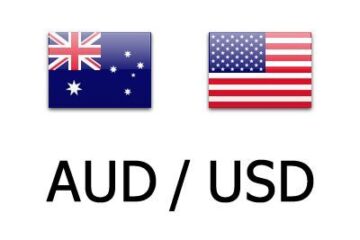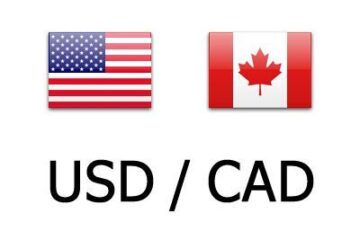With the all of recent recessionary headlines, it can be hard to keep track of who’s saying what — so we made a list.
A recession is defined by two consecutive quarters of negative GDP growth. That’s the “by the book” definition — what a recession is. But what does a recession do?
Recessions are characterized by economic struggle. Essentially, consumers don’t have the same amount of purchasing power, leading companies to make fewer sales. When companies make fewer sales, they generate less revenue, and that leads to increased layoffs and decreased hiring. When companies can’t afford to employ as many workers, unemployment increases, causing consumers to have even less purchasing power.
It can be a nasty cycle, and it’s best avoided if at all possible. So it’s no wonder the “r-word” has taken over the headlines of financial news outlets everywhere. With everyone from investment banks to celebrities chiming in, we thought it would be a good time to summarize everyone’s opinion into a nice, handy list.
Deutsche Bank
Take: 50% chance of global recession
Deutsche Bank was one of the first major institutions to call for a recession — and lately, they’re raising the odds. What they initially called a “moderate chance of a mild recession” has now become what the CEO calls a “50/50 chance of a global recession this year”. Deutsche Bank economists cite reasons like the ongoing conflict between Russia and Ukraine, Chinese Covid-19 lockdowns and supply chain issues among the reasons why they believe a recession could be as likely as a coin flip.
Deutsche Bank isn’t the only major institution that ranks the odds of a major recession at 50/50…
Morgan Stanley
Take: 50% chance of U.S. recession
Morgan Stanley CEO James Gorman told a panel of its investors that “It’s possible we will go into a recession obviously. There are 50-50 odds now,”
Gorman does see some hope in the form of an American consumer who is still flush with cash. Gorman said during the same panel that if inflationary pressures can subside, there’s a possibility that Americans can weather the storm.
Want more free market intel? Check out Market Rebellion’s Rebel Hub for the biggest stories on market-moving events, how-to trading guides, and the latest in Unusual Option Activity from Jon and Pete Najarian.
Wells Fargo
Take: “No question” the U.S. is headed for an imminent recession
Wells Fargo CEO Charlie Scharf has a less nuanced take on the possibility of a recession. Asked whether he thought the U.S. recession was “imminent” he said, “no question”. That said, Scharf does not believe that it’s likely to be a particularly strong or long lasting recession. “Everyone is so strong going into this, [so if there is one, it should be] short, and not all that deep,” Scharf said, referring to the things like corporate balance sheets, consumer strength and economic demand.
Goldman Sachs
Take: 30% chance of a recession in the coming year, 48% chance on a two-year timeline.
Investment bank Goldman Sachs doesn’t think we’re in a recession… yet. But they recently updated their recessionary forecast from 15% likelihood to 30% likelihood year-over-year. And according to Goldman’s team of economists, if the U.S. avoids a recession in the near term (the next 365 days), the likelihood of a recession increases to 48% on a two-year time horizon.
Bank of America
Take: 40% chance of a recession in 2023.
Bank of America echoes Goldman Sachs’ recessionary viewpoint almost exactly, with an added emphasis on 2023. Bank of America analysts (led by Ethan Harris) put the odds of a recession in the year 2023 at 40%, and have been quoted saying: “Our worst fears around the Fed have been confirmed: They fell way behind the curve and are now playing a dangerous game of catch up. We look for GDP growth to slow to almost zero, inflation to settle at around 3% and the Fed to hike rates above 4%.”
Cathie Wood
Take: We are already in a recession, and deflation is soon to follow.
Ark Invest founder and CEO Cathie Wood said in a CNBC interview on Tuesday that she believes the U.S. economy is already in a recession. She cites inventories that are higher than any she has seen in her 45 year long career, and inflation that was admittedly more powerful and longer lasting than she originally expected. Wood still believes in her base case, that this sets up the US for a period of deflation.
Michael Burry
Take: Fed rate hikes will cause economic weakness that leads to a recession, causing the Fed to reverse course.
Michael Burry of “Big Short” fame tweeted Monday that he believes the Fed will soon reverse course on monetary policy once the economic damage becomes clear, going as far as cutting rates and moving back into quantitative easing. Much of Burry’s thesis revolves around a retail “supply glut” — a similar take to Cathie’s, Burry believes that the overstuffed inventories of retail sales will cause “deflationary pulses” and ultimately, economic weakness.
Burry bolstered his case with a citation to this CNN article from June 26th. The article references stores like Target (TGT), Walmart (WMT), Gap (GPS), American Eagle Outfitters (AEO) and more who said in their most recent earnings calls that they have too much inventory. The issue is so bad that many stores are no longer accepting returned products. They’ll provide a refund, but they aren’t interested in the “extra stuff”.
The Majority of CEOs
Take: 60% of CEOs polled say a
According to a recent survey conducted by The Conference Board, CEOs and other C-suite executives were asked about whether a recession was likely to occur by the end of 2023. Over 60% said yes, a recession by or before 2023 is likely. 15% said they believed a recession was already taking place.
Cardi B
Take: We are going into a recession.
Chief economist Cardi B says — just kidding. Cardi B isn’t an economist at all, but she is a notable public figure with the unique power of influence, particularly on the younger generation. In a tweet that has since gone viral, Cardi asks:
The tweet was popular enough to catch the attention of Janet Yellen. Asked in a CNBC interview about the tweet, Yellen said, rather tongue in cheek, “Don’t look to me to announce it.” before getting somewhat more serious “I don’t think we’re going to have a recession.”
Elon Musk
Take: U.S. recession is inevitable, and we are probably already in one.
In response to a recent press release where President Biden said a U.S. recession was “not inevitable” Musk disagreed: “U.S. recession is inevitable”.
He later doubled down on the statement, saying “I think we are probably in a recession and that the recession will get worse.” Musk’s “super bad feeling” about the economy was punctuated by reports that he planned to cut up to 10% of jobs at Tesla.
So… are we going into a recession then?
Perhaps the most important person to listen to on the topic is the man with his hands on the steering wheel: Fed Chairman Jerome Powell. In early May, Powell said, “nothing about [the economy] suggests that it’s close to, or vulnerable to, a recession.”
However, at the most recent FOMC meeting, Powell softened his commentary considerably. Asked whether he believed there was a chance that Fed rate hikes could force the U.S. into a recession, Powell said, “It’s certainly a possibility, [but] it’s not our intended outcome.”
Ultimately, no one actually knows the answer to this question. Just a few months ago, many of the same banks referenced in this article had S&P 500 price targets that were north of 5,000. That isn’t to say that these institutions are dishonest — they just don’t have all the answers. And since quarterly GDP growth is a lagging indicator, we likely won’t know the answer until we’re already in one, or already past the danger zone.


